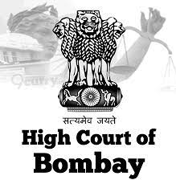About | High Court Of Bombay (HCB) , MAHARASHTRA Check here latest notification
The High Court of Bombay is one of the oldest and most prominent High Courts in India. Established in 1862, it serves the states of Maharashtra and Goa, and the Union Territories of Daman and Diu, and Dadra and Nagar Haveli. The court has its principal seat in Mumbai, which is the capital city of Maharashtra.
Here are some key points about the High Court of Bombay:
Jurisdiction: The High Court of Bombay has original jurisdiction over the state of Maharashtra and Goa. It also has appellate jurisdiction over the subordinate courts and tribunals in these regions.
Bench Locations: In addition to its principal seat in Mumbai, the High Court of Bombay has branch benches in Nagpur and Aurangabad to cater to the needs of the litigants from different parts of the state.
Cases and Appeals: The High Court hears a wide range of cases, including civil, criminal, constitutional, and administrative matters. It also serves as an appellate court, hearing appeals from lower courts and tribunals.
Constitutional Functions: As a constitutional court, the High Court of Bombay plays a crucial role in interpreting and upholding the Constitution of India. It ensures the protection of fundamental rights and acts as a check on the legislative and executive branches.
Administration of Justice: The High Court is responsible for the administration of justice within its jurisdiction. It formulates rules and procedures for the functioning of the courts and oversees the working of the lower courts.
Historical Significance: The Bombay High Court has a rich historical legacy and has witnessed many significant legal developments over the years. Its architectural grandeur and historical importance contribute to its prominence.
Legal Bench: The High Court consists of a Chief Justice and several puisne judges who are appointed by the President of India. The judges are well-qualified legal professionals with extensive experience.
The High Court of Bombay is a vital institution in the Indian judiciary, playing a crucial role in upholding the rule of law and ensuring justice for the people within its jurisdiction.

